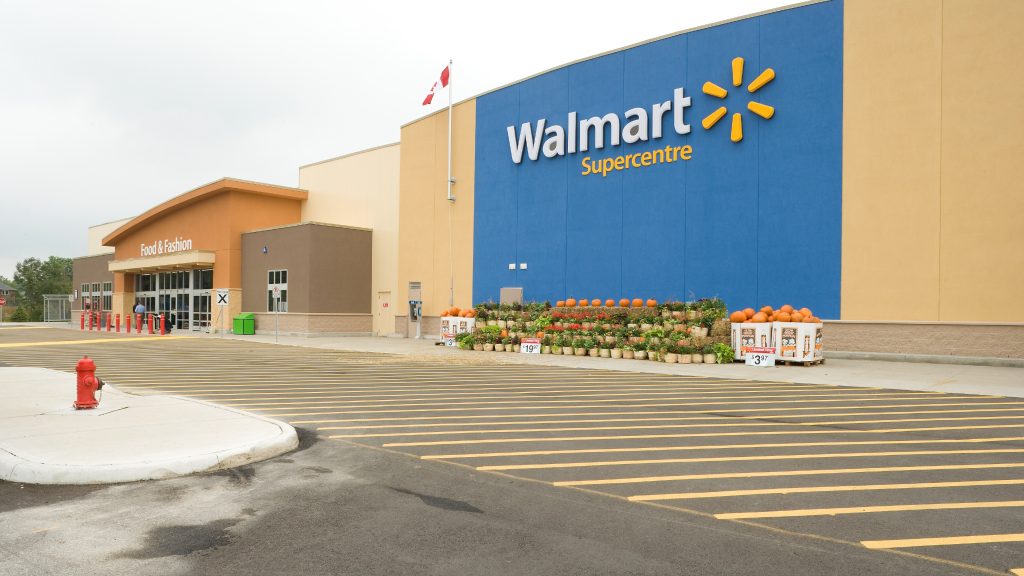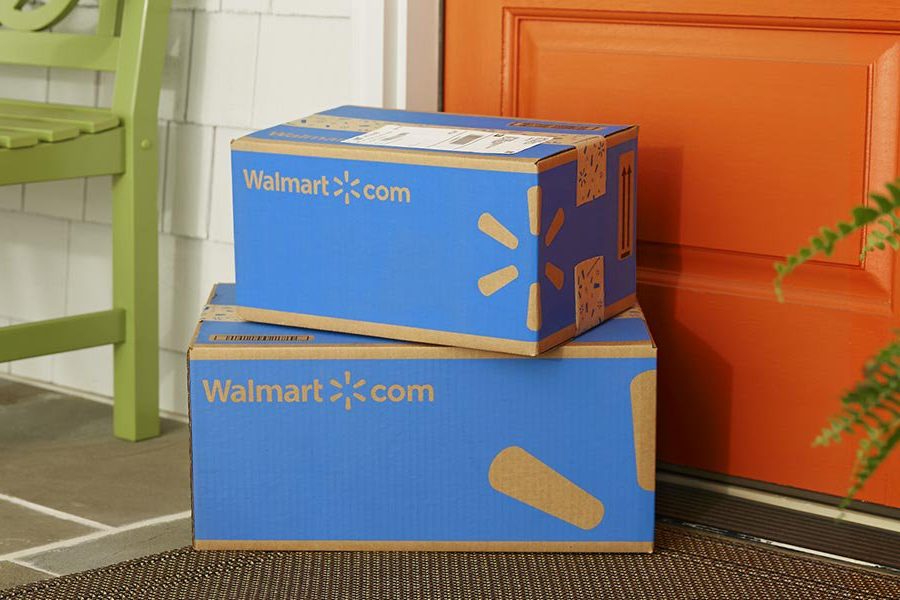Walmart Is Phasing Out Plastic Use For One Of Its Popular Services
Walmart is phasing out plastics in a big way, find out how.
This article is more than 2 years old

Walmart tried a bold concept when it launched a new grocery delivery service: customers letting a stranger into their homes to bring milk, eggs, and other groceries directly into the refrigerator. Now, InHome is putting the country’s largest supermarket and its customers to the test. The aim is to see if customers can wean themselves off of single-use plastic bags along with other types of disposable packaging that ends up in homes and landfill.
Walmart switched from disposable bags to tote bags last fall. The pilot project, which was limited to a shop near the New York metro area, is part of Walmart‘s larger effort to meet one of the corporation’s latest pledges to transition to more responsible packaging. This change in packaging will impact Walmart’s private brands. The company hopes to achieve zero waste in its own operations in the United States and Canada by 2025.
Walmart intends to explore alternatives to single-use plastic for curbside pickup and home delivery in the first half of 2022, according to Jane Ewing, Walmart’s senior vice president of sustainability. These services are rapidly transforming into one of customers’ most highly-favored benefits of shopping at Walmart. Their preference towards the at-home delivery service grew as they became accustomed to the convenience during the pandemic.
Wall Street, legislators, and consumers have pushed publicly traded corporations to adopt ambitious sustainability targets. Single-use plastics are being banned or charged fines in an increasing number of states, major U.S. cities, and countries. Consumers, particularly millennials and Gen Zers, are becoming increasingly concerned about a company’s environmental impact. In addition, while selecting whether to buy or sell a company’s shares, investors evaluate environmental, social, and governance issues.

Companies are “reading the writing on the wall,” according to Judith Enck, president of the charity Beyond Plastics. This was much the same as they did when states and towns began phasing in higher minimum wages. Nonetheless, she expressed dissatisfaction with merchants and businesses making pledges that came accompanied by lengthy schedules yet featured modest measures toward compliance.
Enck went on to say that businesses need to be more daring and move faster. These aren’t supposed to be pilots.” They should be part of the store’s regular operating procedure. From cucumbers to clamshells, there’s something for everyone. Ewing said her team at Walmart scours store aisles and backrooms for methods to reduce plastics from its supply chain. Her team checks everything from pallet wraps to clamshells that house fresh greens. Walmart, she added, is particularly interested in developing packaging that keeps fruits and vegetables fresh. For example, the packaging developed with start-up Apeel uses a transparent, edible plant-based coating on a cucumber instead of shrink-wrapping it in plastic.
Walmart plans to extend its InHome delivery service from 6 million to 30 million households by the end of the year. The monthly subscription program is $19.95. Millions more consumers will get their groceries and other products delivered straight to the house in convenient reusable bags in the coming months. Walmart has yet to decide which geographic markets will receive the tote service or how many consumers will receive it. However, she does state that the test will be expanded in the Northeast. Finally, she expressed her desire to see InHome’s bags used across the country.
Other aspects of the InHome program are designed to be environmentally friendly. Walmart, for example, has reserved 5,000 electric delivery vans from Tesla. According to Mike Newman, CEO of Returnity, reusable packaging must make financial sense for the model to function. This refers to packaging that is regularly used, is made of recycled plastics or other environmentally friendly materials, and has a return rate of more than 92%. According to him, the return rate for the Walmart program was around 100%.
One of Returnity’s early investors is James Reinhart, the CEO and co-founder of online thrift store ThredUp. Reusable packaging failed at ThredUp and proved a valuable lesson, according to Newman. He said that too many clients threw away company-provided bags rather than reusing them. “You have to be cost-competitive,” he said. “It doesn’t matter how green it is. If it can’t be economically viable, it’s never going anywhere



